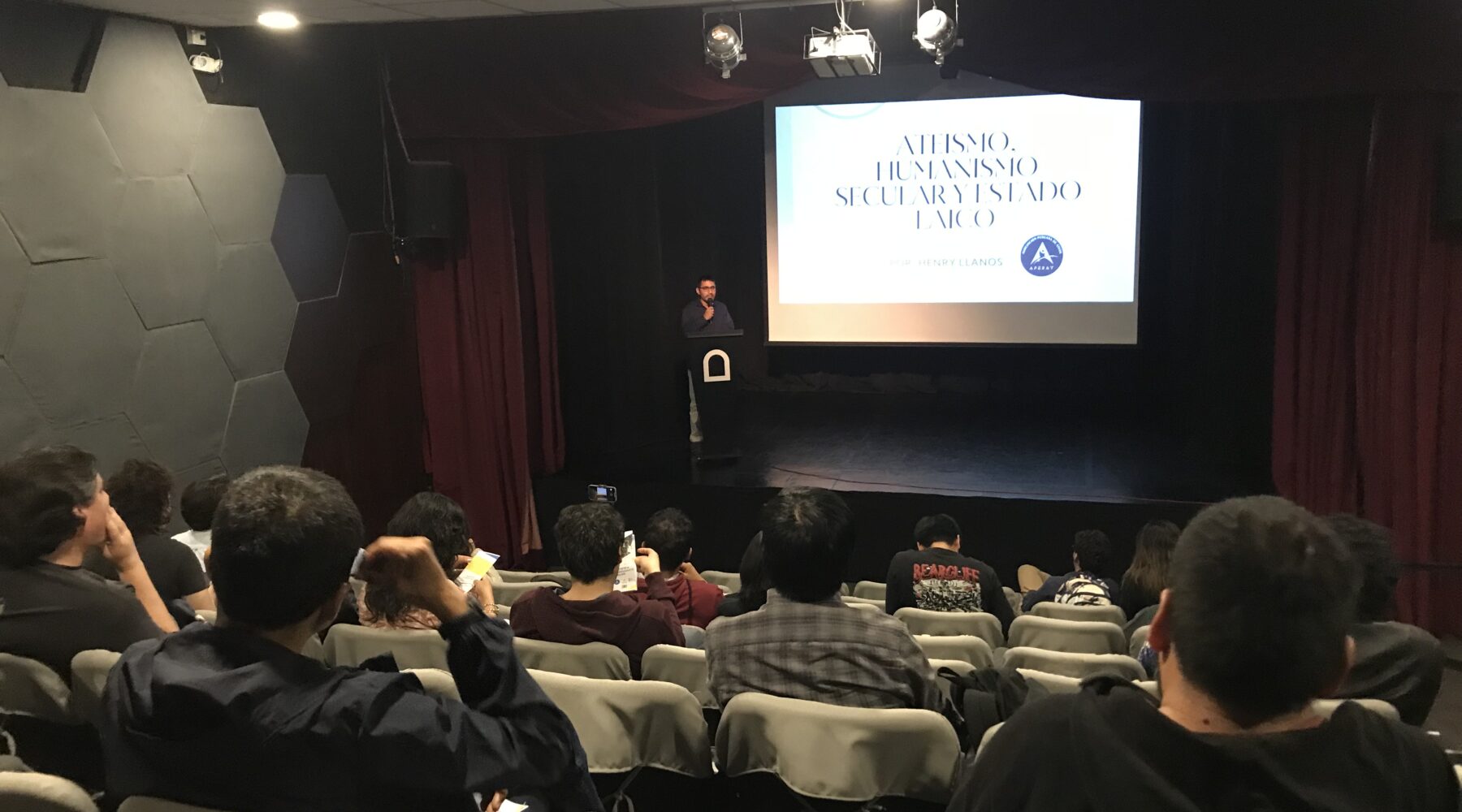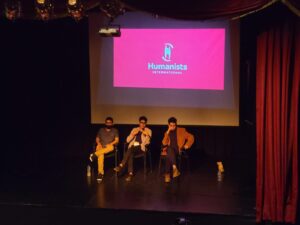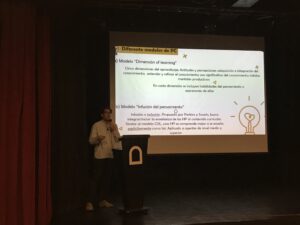



Piero Gayozzo is the director of the Secular Humanist Society of Peru and a member of the Peruvian Association of Atheists.
As an average Latin American country, Peru is not only a traditional but also a Christian nation. According to the 2017 national census, almost all Peruvians share the Christian faith, with Catholicism being the most popular (76%). Only 5.1% of people older than 12 years answered that they have no religion. This situation should not be a problem in itself, but unfortunately, many groups and politicians try to mix religious ideas with politics. This was evident in many cities during the pandemic, when their authorities made many efforts to organize public prayers and religious rituals to cure COVID-19, and in recent years, when abortion laws and same-sex marriage projects were stopped and banned by these movements. In fact, religiosity has a negative impact on the recognition of sexual minorities, reproduction, human freedom, and human enhancement rights, so what can we do?
Many efforts have been made to increase tolerance in the public sphere and the growth of the non-religious community in Peru. One of them is that of the Peruvian humanist community. The Peruvian Association of Atheists (APERAT) was founded in 2009 with the aim of bringing together non-believers, atheists, and humanists in Peru. Since its creation, many projects and activities have been carried out to promote humanist values and the importance of transforming Peru into a secular state. During the development of its activities, APERAT joined Humanists International and began to work hand in hand with them to change the course of our country and the world.
In 2023, as every year, Humanists International opened the grant application system to support and improve the effectiveness of humanist organizations around the world. APERAT applied and received a Regional Networking Meetings Grant to create and strengthen a humanist network in our country. APERAT has called this program “The Secular Humanist Route – Peru” and it consists of organizing a series of conferences in at least three major cities in our country to unite non-believers and humanists and create a stronger regional network. Connecting new activists from outside Lima and attracting new people to this international effort is the best way to create a humanist country. Step by step, city by city, and individual by individual, APERAT will continue to try to make this humanist dream a reality.
Between 2022 and 2023, APERAT organized a Café Humaniste presentation in Arequipa in collaboration with Humanists International. Arequipa is the third largest city in Peru. It is located in the south and has a high immigration rate from the mountainous regions. The first Café Humaniste was presented in a local culture house and gathered almost 30 assistants. The program consisted of three conferences: “Why we believe in gods” by regional director Diego Rossel, “Why atheism is the most rational choice” by President Henry Llanos, and “Secular Humanism and the Secular State” by APERAT activist Piero Gayozzo. The second Café Humaniste was held at the beginning of 2023 and gathered almost 20 atheists. It was a traditional meeting in a rooftop bar, where the assistants not only listened to the conferences but were also invited to exchange ideas and arguments on ‘Atheism and Secular Humanism’ with APERAT representatives during a dinner.

This time, because of the many activities we did there and the people we met, APERAT decided to make Arequipa the first stop of this Secular Humanist Route project. As in the other events, APERAT worked with the Secular Humanist Society of Peru and presented a conference entitled “Atheism, Skepticism and Society”.
The first table was dedicated to skepticism and critical thinking. Regional Director and psychologist, Diego Rossel, spoke about “Pseudoscience in Psychology” as a reminder that mental health could be scientific and does not need empty promises or religious sentiments to have a positive impact. Arequipa activist and psychology professor Eduardo Pérez dedicated his speech to critical thinking and presented the best ways to develop it and not fall under the influence of supernatural beliefs. The last and main speaker of this panel was Víctor García-Belaunde Velarde, founder and director of the Secular Humanist Society of Peru, psychologist, philosopher, and researcher at the University of San Ignacio de Loyola. He shared the results of his research on pseudoscientific thinking, how to recognize pseudoscience and the threat it poses to social well-being.
The second table focused on “Secular Humanism and Society”. Henry Llanos, President of APERAT and a philosopher of science, dedicated his time to talking about humanist values and their relation to atheism and science. He pointed out the importance of these values to achieve a better and more inclusive world. Next to him, Piero Gayozzo, director of the Secular Humanist Society of Peru, member of APERAT, and student and researcher in political science, spoke about “The crisis of democracy and its impact on the secular humanist project” and how there are many international individual and group efforts to undermine and weaken democratic institutions. This situation represents a real crisis that could negatively affect the development of the humanist project and groupings.

The last table was about atheism and included a special conference. As far as we know, APERAT organized the first conference on Peruvian atheist history ever held in our country. It was presented by the invited historian Sebastián Pastor Ramírez, Assistant Professor of 20th Century World History and Academic Research at Pontifical Catholic University of Peru. It was the first part of an investigation into how atheism was popularized in Peru and who were its main representatives in the period from the XVIII to the XXI century. Lost names and anecdotes related to atheism were remembered in this speech and reminded us of people who were exposed to many dangerous situations just because they had a non-believing attitude.
The event was successful. We met many new people interested in humanism, and it was another opportunity to consolidate APERAT’s membership in Arequipa. We are very grateful to Humanists International for supporting these activities and doing its best to connect humanists around the world. Arequipa was only the first stop on the Humanist Route – Peru. We will continue working to replicate it in other cities because we truly believe that the only way to create a better world is to follow the Humanist Route.
As a registered charity and NGO, we rely on the donations we receive from our members and supporters to help us campaign on humanist issues, lobby for humanist values at international institutions (including the United Nations) and protect humanists at risk of persecution and violence. If you support our aims, please consider giving a one-off or regular gift today. Thank you.